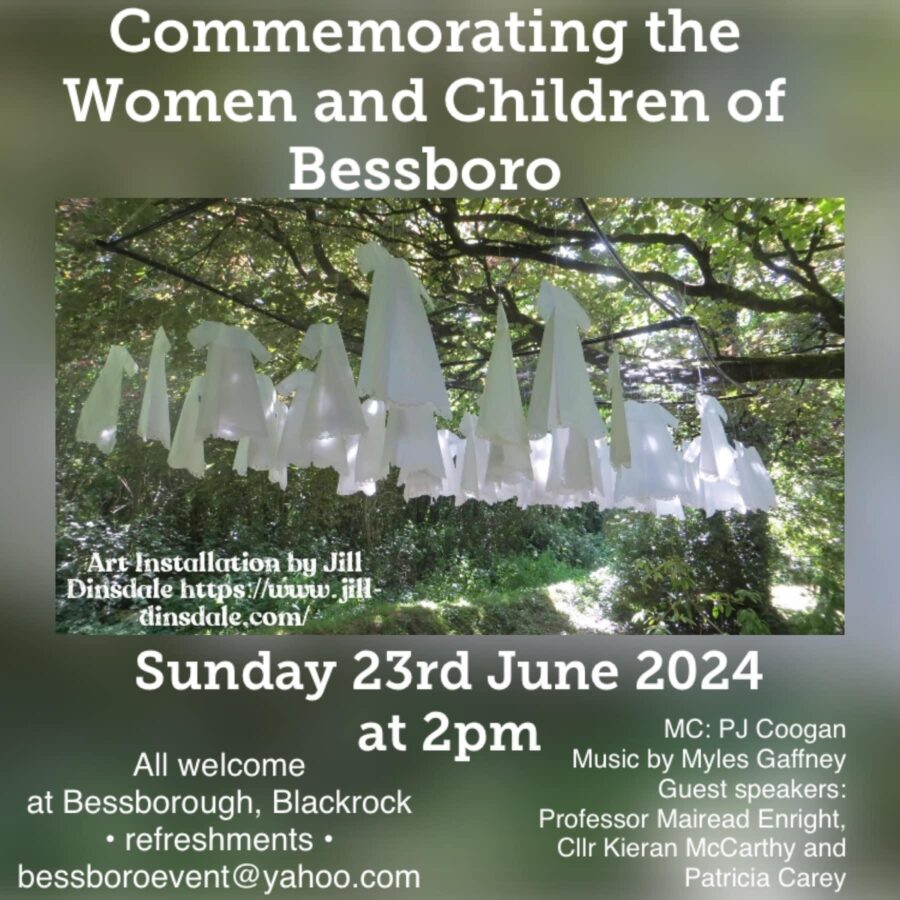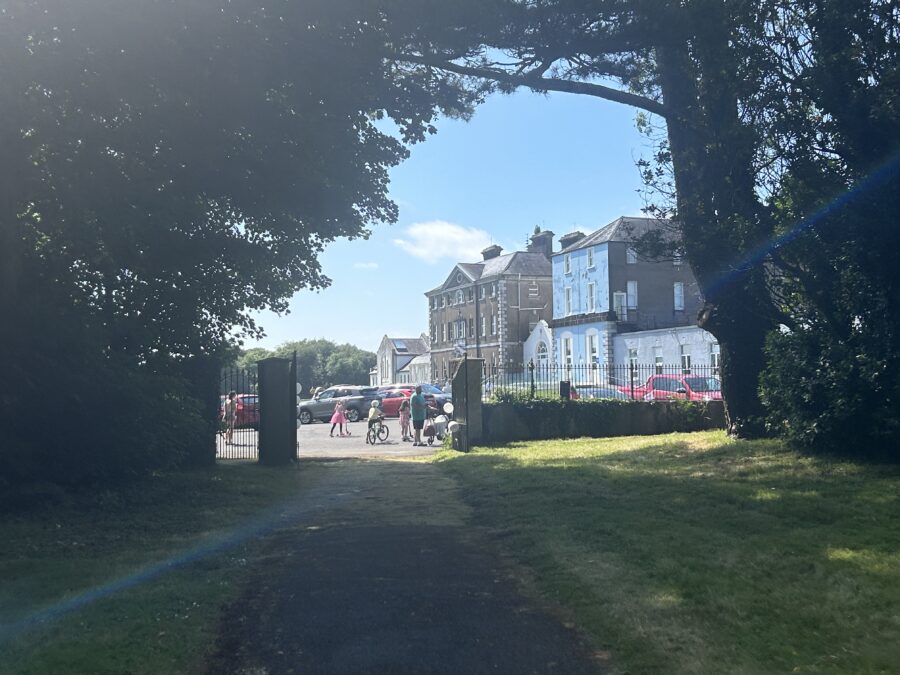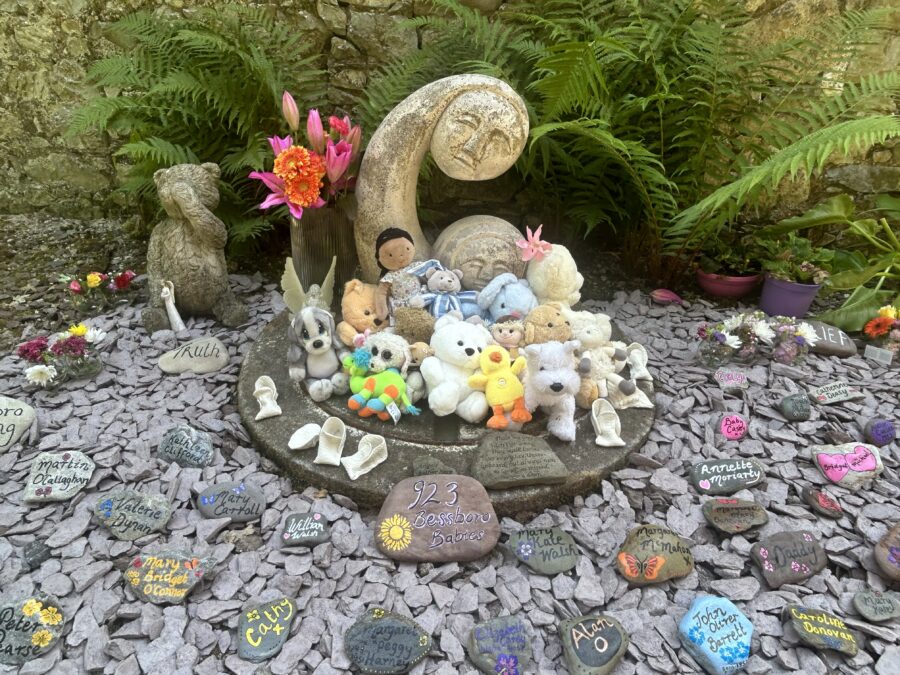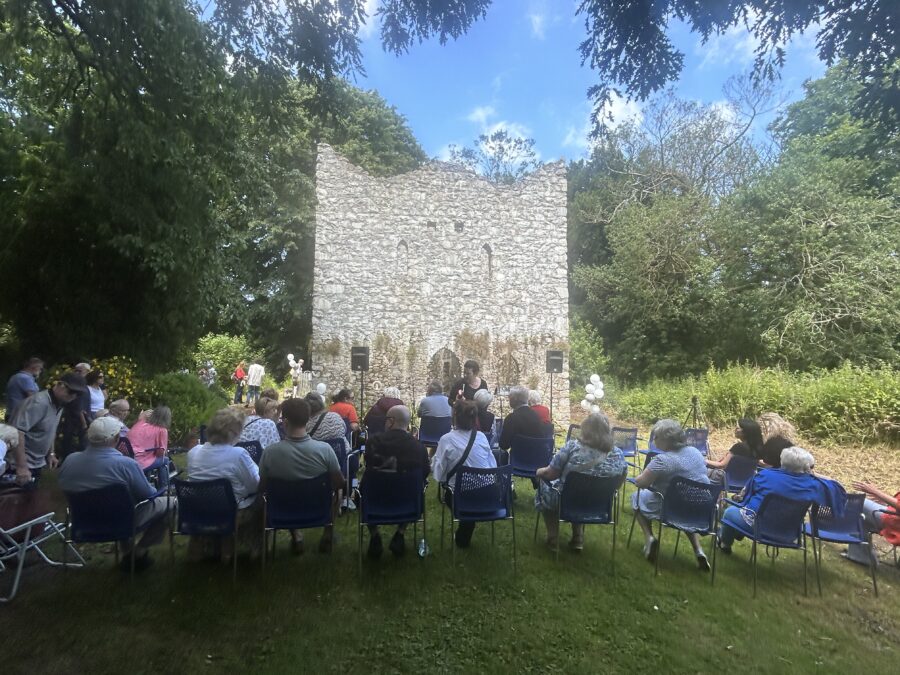
Dear Carmel, dear members of the committee, dear speakers, dear friends.
Many thanks for the invite to speak this afternoon.
I have a short reflection, which is all about the nature of story-telling.
By trade I am a story collector on Cork’s past and Ireland’s past
They say that stories have the power to stop someone, impress on someone, make one question, make one wonder, make one dream, make one remember, make one be curious, make one be disturbed, make one explore and make one to not forget – a whole series of emotions.
And in Cork history there are many stories over the years that have stopped me people, that make people wonder, that make them curious, that make them remember.
In the city library, I regularly take down local history books and learn about this locale or neighbourhood, and as you turn the pages on books on Blackrock for example…
you can read about for example the story of the old railway line (the third railway line to be built in Ireland in the mid nineteenth century),
You can read about The Marina (a former wall to keep ships out from the swamp and then a walkway created during the Great Famine)
You can read about Blackrock Pier (the home to over 2,000 people in a small fishing village in the nineteenth century),
You can read about Ringmahon House (and the story of the Murphy family and their brewing industry),
You can read about Ballinure Village (and the story of the O’Mahonys of the Mahon peninsula)
You can read about the features of the old Lakelands Estate (and the story of the philanthropy of the Crawford family and the surviving feature along the Joe McHugh Park),
And you can turn the page and read about this nineteenth century folly or fake castle and its original purpose and the house here of the Pike family of Bessboro house and their steamship industry and then you turn the page over…and for our story today, the ink disappears.

The city’s memory bubble on Blackrock does much remembering of bricks and mortars stories very well but when you dig down deeper into the social elements and talking about the realities of people’s lives – that’s where there are vast swathes of voices missing.
It has got better in more recent years when it comes to collecting oral history testimonies. The city’s memory bubble collection is very selective, and heavily influenced by Ireland’s memory bubble, which is very selective.
As a place Cork doesn’t do traumatic history re-telling, turbulent history re-telling, dark history re-telling, oppressive history re-telling, control history re-telling so to speak.
I was going to add doesn’t “do very well” to such a statement – but we don’t do it at all really– it’s not in mainstream school curricula, it’s not in mainstream oral history, it’s not in mainstream Irish history books, it’s not in mainstream history conferences, it’s not in mainstream history performances/ pageantry/ festivals/ heritage gatherings.
The recent reports from central government on topics such as industrial schools and Mother and Baby homes are an important step but only a step towards reconciliation of traumatic history and memory.
And so, the importance of the gathering here for the past ten years should never be underestimated. It is crucial for so many reasons.
This gathering is a beacon or a lighthouse to not only tell the stories of what happened here, to the tell the human experiences of what happened but also lead the calls to break the selectiveness of Cork and Irish history and completing the multitude of memory banks that are only partly explored – and to learn from all of that.
It is said that if don’t know our past, we don’t know where we’re going or history can repeat itself if we don’t learn from the past.
However, if we don’t explore all of the past, if we don’t unlock all of the history – then the paths of our future will only be partly laid out and we will not learn even more effectively going forward.
Bessboro needs to be a place where the selectiveness of history is broken, the woven vines of stories and histories unwoven and laid out properly,
where questions are answered and more questions asked and more answers given and that not just Cork people learn from this tragic site but also the rest of Ireland as well.

This event today and other impressive voluntary work has been the stay of all those who have stayed with the Bessboro story for not just the past decade but before that as well for decades.
In essence the story here needs to be at least in mainstream school curricula, in mainstream oral history, in mainstream Irish history books, in mainstream history conferences, in mainstream history performances/ pageantry/ festivals/ heritage gatherings. Plus, Plus, Plus.
Above all I share the perspective that this site here in Bessboro needs to be a large ,scale memory site or park. In my head, I’d like to see the whole space as as a prominent commemoration site in our city and in our region. And that’s my call to An Bord Pleanála – that when the planning process is finished and if it is a negative following on from Cork City Council’s planning department’s deliberations that An Bord Pleanála with the help of central government work with the developer to see what can be done to either directly purchase or CPO the lands for commemoration purposes.
– And for this to be pursued for many reasons – yes as a sincere nod to those whose personal lives are woven to the Mother and Baby home story but also as a commemoration lighthouse of the journey Irish history and all its nuances still need to travel.
A memorial site with the Folly at the heart of it, where the stones represent the pieces of a puzzle that needs to be resolved and much, a folly as a place of discussion, hope, resilience, justice, human rights, dignity, voices, truth, survival, and inclusion – that the names of the babies accounted for and unaccounted for be detailed in bold, where seats, commemorative sculptures or pieces, healing spaces, thought provoking spaces, history re-telling spaces all exist– a space for all to come and reflect – and not just a Blackrock or commemoration City space – but a national and European site of reflection.

We need government, local government and societal intervention for this and all of us working together on this.
My sincere thanks again to all the team for organising this event for the past ten years and also all the daily work for justice to put the story here on the mainstream Irish history map so to speak.
I remain supportive as a local historian and Councillor in Cork City Council and remain conscious we all need to gather together even more to work through the history, heritage and memory of this particular site and through the other similar but precious sites as well.